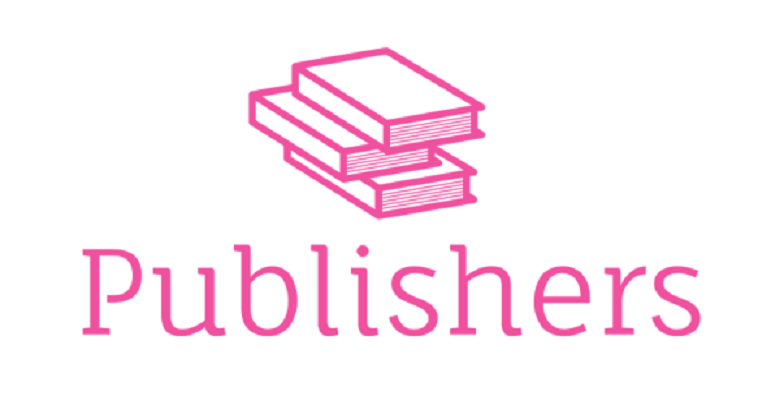The process of transforming an initial glimmer of inspiration into a completed book is convoluted, consisting of multiple stages and fluctuating schedules. Whether considering self-publishing or traditional publishing, it is advantageous to comprehend the complexities associated with each phase to navigate the process with greater efficacy. This guide aims to provide an in-depth analysis of the customary procedures and average durations that authors confront. Doing so will assist you in establishing practical anticipations and overseeing your writing-to-publishing workflow.
The Writing Phase
Each book commences with a nascent notion, a spark of inspiration that necessitates cultivation via the writing process. Although writers may have varying approaches and regimens, it is essential to develop a consistent writing practice to advance. Numerous prolific authors recommend establishing daily word count objectives of at least 2,000 words. Detailed below are the approximate publication dates of various categories of books:
- Novellas (20-50k words): 3-6 months.
- Standard Novels (60-80k words): 6-12 months.
- Epic Novels (100k+ words): 12-24 months.
- Non-Fiction Books: 6-18 months, depending on research depth.
These estimates consider both small and large writing sessions regularly, in addition to variables such as the story’s complexity, the requirements for world-building, and competing priorities. It is critical to set aside additional time in anticipation of possible rewrites or unforeseen life interruptions. It is generally recommended that a minimum of one draft be completed prior to contemplating publication alternatives.
Editing Your Manuscript
Following the completion of the initial iteration, the manuscript is refined into a polished work through a series of revisions and edits. It is frequently advised to distance oneself from the manuscript prior to revisiting it with a renewed perspective. A minimum of two months should be allotted to proofread, refine language, resolve inconsistencies, and ensure coherence and flow. An additional advantage is the ability to hire a professional editor for at least one round of review.
Manuscripts generally endure several rounds of revision prior to being considered complete enough for beta readers and ultimately submitted to publishers or agents. Although soliciting feedback is essential for progress, exercising forbearance is critical to prevent rushing critical phases of manuscript development.
Traditional Publisher Submission & Acquisition

Individuals who wish to pursue conventional publishing must submit their work either to literary agents or directly to publishers. Nevertheless, this approach frequently necessitates perseverance and the capacity to endure numerous rejections. In most cases, the following items are included in the schedule for obtaining a traditional book deal:
- Querying literary agents: 3-12 months to secure representation through repeated query efforts.
- Agent submits to publishers and waits for requests/offers: 6 to 12 months for consideration on average.
- Negotiating contract terms: timelines vary.
- Multiple rounds of editorial review and rewriting: for intricate novels, six to eighteen months or longer.
The minimum timeline just to acquire a traditional book deal is often 12-18 months from the initial query. Authors who are well-established and have a substantial sales history or platform may advance through the process faster.
Self & Small Press Publishing Production
Authors have absolute authority over the creative and commercial aspects of publishing when they self-publish. The typical production schedule for self-published publications comprises the following:
- 1-2 weeks to format the manuscript for ebook/print using software or services.
- Commissioning a professional cover design for a single concept requires two to four weeks.
- 2-4 weeks for interior page design and layout, contingent on complexity.
- Multiple passes of proofreading require one to two weeks each.
- Distribution platform set up one to two weeks.
- Physical bookproof printing one to two weeks, on-demand.
- Cycles for beta reader feedback 2 to 6 weeks overall.
- Final revisions and publication file preparation one to two weeks.
- Promotional campaign launches require at least two months for discovery.
Dedicated independent authors frequently strive for major release cycles of four to six months. Small press partnerships operate in a comparable fashion, albeit necessitating lead times of 8-12 months to accommodate seasonal schedules. Both alternatives provide greater creative autonomy and adaptability in contrast to the conventional publishing process.
Timing Releases for Maximum Impact
By strategically timing book releases, their success can be significantly impacted. Critical periods such as the spring, summer, autumn, and holiday shopping seasons present exceptional prospects for the introduction of new books. Project announcements made two to three months in advance permit comprehensive events and pre-release marketing planning. Winter and Christmas window launches offer notable benefits in terms of optimizing gift sales, whereas release calendars are also influenced by deadlines for awards.
Sums Up
To summarize, the following are the projected minimum and maximum durations for the different phases of the publishing process:
- Writing Phase: 3-24 months.
- Construction of a Manuscript: 6-12 months.
- Standard time frame: 12 to 24 months.
- Independent/Small Press: six to twelve months.
- Self-Publishing: Minimum complete process time of 6 to 12 months.
While several factors can influence these timelines, perseverance and careful consideration are crucial to increasing the likelihood of generating high-quality work that connects with readers. Authors can effectively and deliberately navigate the publishing process by adhering to consistent creative output and strategic planning.
Frequently Asked Questions
1. How can I surmount writer's block that occurs during the composing process?
Authors may encounter writer’s block as an irritating obstacle. Investigate strategies such as engaging in freewriting, establishing more manageable objectives, altering surroundings, or drawing inspiration from alternative creative mediums to revitalize one’s creative spark.
2. How do I locate and choose an appropriate literary agent for my manuscript?
Securing an appropriate literary agent is critical to achieving success in traditional publishing. Increase your chances of finding the ideal agent by researching reputable agents who specialize in your genre, customizing query letters, attending writing conferences, and making use of online resources such as agent databases.
3. How do I determine whether self-publishing or traditional publishing is the best course of action for my book?
Authors must thoroughly understand the advantages and disadvantages of traditional publishing versus self-publishing. Despite the prestige, broader distribution, and editorial support that traditional publishing provides, it demands perseverance and an understanding of rejection. Although self-publishing provides the advantage of creative control and expedited publication, it also necessitates a substantial investment of time and effort in the areas of marketing and distribution.
4. What efficacious marketing strategies can be employed to introduce a new book to an audience?
A critical factor in determining the success of a book launch is marketing. To increase visibility and engagement, consider implementing the following strategies: establishing an author platform via social media and blogging, capitalizing on email lists and newsletters, obtaining early reviews and endorsements, orchestrating virtual or in-person book events, and actively participating in book communities and influencer interactions.
5. What are the steps involved in acquiring copyright and legal protections for my work?
For authors, safeguarding their intellectual property is vital. Acquire knowledge regarding copyright regulations and the procedure for registering one’s work with the appropriate governing bodies. For assistance with contract drafting, rights agreement negotiation, and navigating potential legal issues associated with publishing contracts and intellectual property infringement, it is advisable to seek the counsel of a literary attorney.



